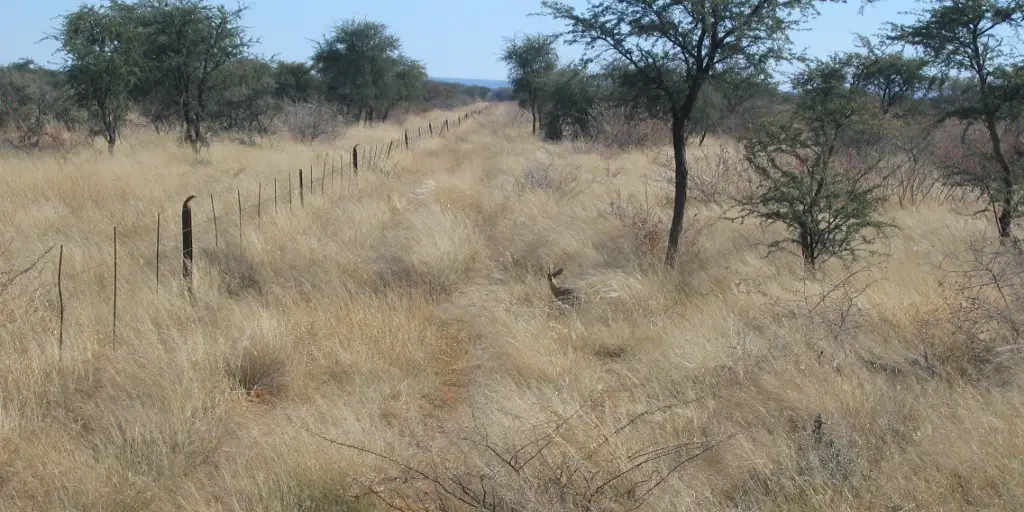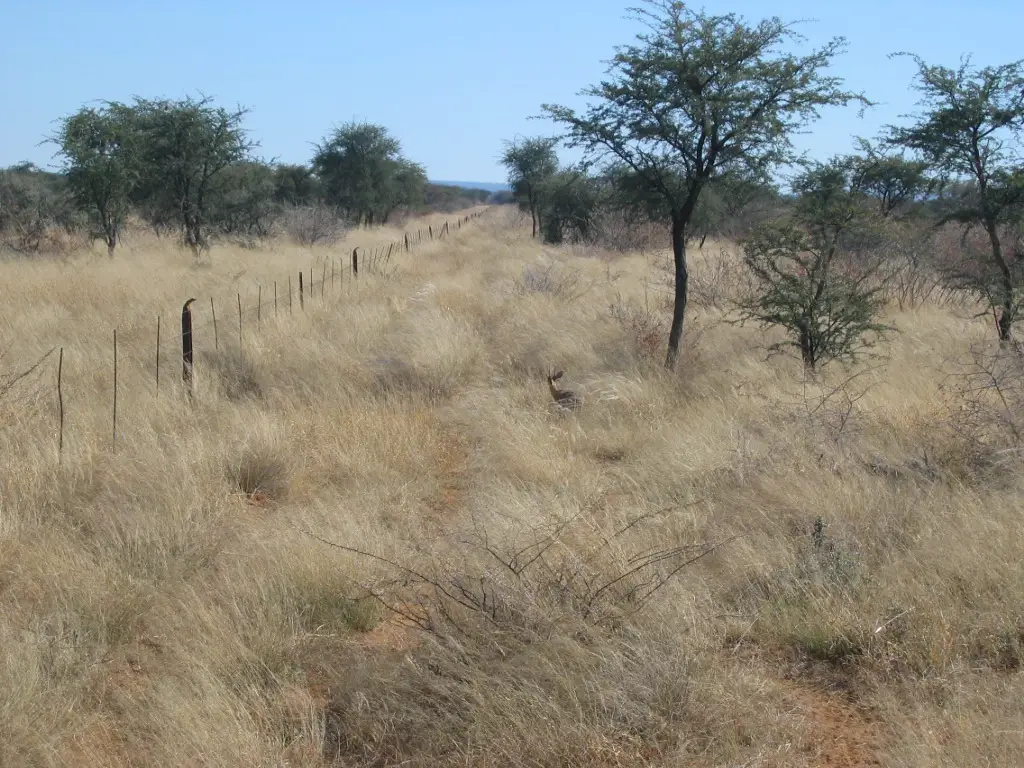This is the sixth and final post in a series about my Namibia hunting safari. You can read the previous posts about our preparation for the hunt here, about my first African trophy here, about mine and my father’s kudu here, about my long shot on a red hartebeest here, and about the final days of the hunt here.
When all was said and done, my 14 day safari was a tremendous success. However, there were a number of things I could have done better. I’m going to share my thoughts on those things in hopes that others may learn from them and avoid some of the problems I experienced.
Medicine
First and foremost, if you are traveling outside the United States, especially on a trip to an exotic location like Africa, make sure you see your doctor and get a prescription for ciprofloxacin. Taking this at the first sign of illness can greatly reduce the length and severity of traveler’s diarrhea. You should also bring Pepto-Bismol and Imodium to help with the same problems. Not only is getting ill extremely unpleasant, but when you are paying several hundred dollars a day on a safari, the last thing you want is to be sick in bed.
Shooting
I can’t stress this enough: you can’t over prepare when it comes to marksmanship for your safari.
While I felt I had a good understanding of proper shot placement on most African game, I was surprised by the wide variation in shooting distances I encountered in Namibia: I ended up taking shots at ranges between 10 and 350 yards and I did not adequately prepare for those challenges.
All of your practice should be from positions that simulate real life field positions, not from a bench rest. Get out of your comfort zone by buying a set of inexpensive shooting sticks and practicing shooting at various different ranges with them. Once you can put all of your shots in a 6” diameter circle at ranges out to 150 yards off of shooting sticks, you are prepared.
Additionally, I REALLY wish I would have brought some hearing protection with me for use on that hunt.
In addition to practicing , try shooting a target at a given distance, then as quickly as possible, work the action and shoot a second target at a different distance. This will help simulate a rapid follow up shot on an animal. Finally, determine how much the bullet from your chosen hunting load will drop relative to your zero at extended ranges. The vast majority of shots on a typical safari will be between 100 and 150 yards. However, if a 70” kudu steps out 250+ yards away, you will want to have confidence in yourself and your equipment to make that shot.
Though I certainly enjoyed hunting with the rifles I brought, doing so was certainly pretty challenging and cost me some opportunities.
Just about any of the cartridges below would have been much better choices for that sort of hunting than the Martini-Henry or .45-70.
25-06 vs 6.5 Creedmoor vs 270: The Results Might Surprise You
6.5 Creedmoor vs 308 Winchester Debate Settled
270 vs 280 Remington vs 280 Ackley Improved vs 7mm Rem Mag
7mm Rem Mag vs 300 Win Mag: What You Know May Be Wrong
Optics
I went to Namibia with a set of cheap binoculars and I regretted it. My father had a much nicer set of Leupold binoculars and there was a significant difference between his and mine. High quality optics are essential for observing game and judging trophies at extended distances and in low light. I learned my lesson, and before my second trip to Africa I bought a pair of Leupold BX-2 Cascades 8x42mm binoculars. They were light enough to carry around all day, waterproof, very durable, and provided excellent optical clarity, even in low light conditions. The same goes for rifle scopes. It is not wise to rely on a $50 rifle scope on a potentially once in a lifetime trip to Africa. It’s not necessary to spend a fortune on a Swarovski scope when a Leupold or Nikon scope will work almost as well at a fraction of the price.
Fitness
Thankfully, I went in good shape, but this is another area where many people go to Africa unprepared. An African safari is a very strenuous affair. There were many days where we walked three miles or more, especially while hunting for the mountain zebra. Being in good shape will make the whole hunt a much more pleasant affair and probably increase your chances of success. You don’t have to train like you are getting ready for a marathon, but working up to walking or running three to four miles a day a couple times a week will prepare you very well for virtually any African plains game hunt.
Follow Up Shots
I was initially hesitant to take follow up shots on animals. I think that is something that is ingrained in a lot of Americans who grew up deer hunting since it is seldom necessary to shoot a white tailed deer more than once. However, that is not always the case in Africa; many of the animals are much larger and they seem significantly tougher than white tailed deer. Do not get caught “admiring your shot.” Make a good initial shot, then immediately work the action on your rifle and get ready to shoot again. If the animal is still on its feet and you can shoot safely, do so. Follow up shots are the ethical thing to do in order to minimize suffering on part of the animal, and can also save you and your PH a lot of time and effort tracking.
Camera
Get a good camera for your trip and learn how to use it. You will see some extremely beautiful landscapes in Africa in addition to a number of new and exotic animals. It would be a shame not to capture them to view later and share with family and friends. Also, consider bringing a camcorder to Africa to further record and document your adventures.
Company
I was fortunate enough that my father was able to accompany me on both of my trips to Africa. If you can, go on your safari with a friend or a family member. Not only does it slightly lower your daily rate in most places, but it makes the trip much more fun and memorable to have someone there to share the experience with you.
I hope you have found this and the preceding articles about my first African safari both informative and entertaining. Please do not hesitate to contact me for more information regarding planning an African safari. Also, I welcome any feedback or comments that you may want to offer regarding your past hunting experiences, especially in Africa.
Make sure you follow The Big Game Hunting Blog on Facebook, Instagram, Twitter, and YouTube.
NEXT: THE .45-70 GOVERNMENT: BONE-CRUSHING PERFORMANCE FROM AN OLD SCHOOL LEVER ACTION
NEXT: THE .30 CARBINE: A LIGHT, BUT USEFUL CARTRIDGE
John McAdams is a proficient blogger, experienced shooter, and long time hunter who has pursued big game in 8 different countries on 3 separate continents. John graduated from the United States Military Academy at West Point and is a veteran of combat tours with the US Army in Iraq & Afghanistan. In addition to founding and writing for The Big Game Hunting Blog, John has written for outdoor publications like Bear Hunting Magazine, The Texas State Rifle Association newsletter, Texas Wildlife Magazine, & Wide Open Spaces. Learn more about John here, read some of John’s most popular articles, and be sure to subscribe to his show: the Big Game Hunting Podcast.



